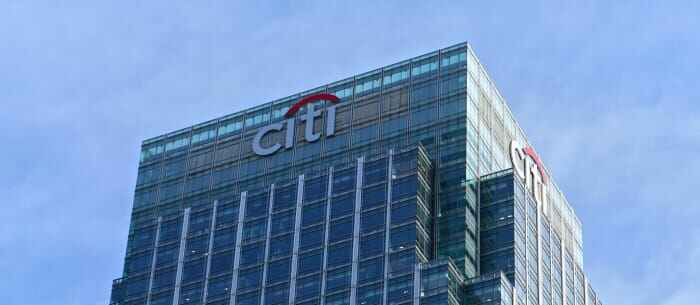Current Affairs
The Troika: The Lecturing Goes On
19 April, 2020
For some two decades the troika, the United States, Britain and Norway have been engaged extensively in Sudanese affairs starting with the Naivasha peace talks between the government and the southern rebel group, the SPLM. They were the main bankrollers of the negotiations that was culminated with the signing of the CPA, through its six years interim period, then the referendum that led eventually to the separation of South Sudan.
And the troika continued its engagement given the new realities following the outbreak of war in the Blue Nile and Southern Kordofan, in addition to Darfur, the outstanding, unresolved issues between Sudan and South Sudan.
On the first anniversary of the removing of the defunct Ingaz regime, the troika showed up noting that it was one of the witnesses to the signature of the Political Agreement between the Forces for Freedom and Change and the Transitional Military Council in August 2019.
The troika, who said it will remain committed in supporting Sudan’s peaceful, democratic transition stated that, “ progressing a reform program to help address these problems and help stabilize and stimulate the economy would allow the international community to work with and support the civilian led transitional government. It would also help in the response to the pandemic,” it said.
However, the track record shows that so far the troika has done almost nothing to help the civilian-led government to navigate through the difficult transitional period. Leaving aside the complex issues of peace and reforming the economy the troika failed even to address the thorny issue of placing Sudan into the US list of States Sponsoring Terrorism (SST).
This issue proves to be an added burden, not only preventing the country from getting aid from some international organizations like the World Bank because of the automatic veto from Washington since Sudan continues to be the SST. Not only that, but SST proves to be another obstacle even for Sudanese in diaspora who want to help their country in its moment of need of facing up to the Covid-19. The situation was so frustrating leading Prime Minister Abdalla Hamdock to write to the UN Secretary General Antonio Guterres asking him to use his good offices.
Technically speaking removing Sudan from SST should involve a commitment from the country concerned not to engage in any terrorist activities, not to finance or provide logistical support to terrorists and put such promise should be put under a six months review, but during the long Ingaz regime, Washington developed the habit of moving the goal posts from time to time.
However, the pressing issue Sudan currently faces is the over compliance by foreign banks in dealing with the country. Khartoum has suggested at one point that the US administration should encourage Citibank, which used to have a branch in Khartoum to reopen it and give a living example that other foreign banks can follow.
The administration excused itself that it can’t dictate on a private enterprise how to act. Following the outbreak of the civil war in Sudan back in early 1980s then assistant secretary of state for African affairs Chester Crocker told then energy minister Sherif El-Tuhami that if Khartoum reached some understanding with the rebels, Washington will get Chevron to resume its operations in Sudan that had been suspended.
The current involvement of President Trump and his encouragement to OPEC and its allies to striking an unprecedented oil deal shows clearly that if there is a will there is a way. Clearly there is no will to help Sudan even in the small issue of facilitating banking transactions. Instead there is this barrage of lecturing on what Sudanese ought to do.
At stake is not only Sudan and its yearning for a civilian-led democratic transformation, but also the commitment of the troika to the issues of democracy, freedom and human rights. If Sudan has to make tough decisions, the troika on the other hand has to show some tangible support that can encourage the government to take the bitter medicine recommended.
A successful democratic transformation in Sudan supposed to be in the long term interest in the troika not only in beefing up the western, liberal way of ruling, but more concretely a successful transformed Sudan can help stem the flow of illegal immigration and human trafficking, in addition to providing a living example for other countries.
E N D
SS/AS
Post your comments
Photo of the Week
Everybody alive today came from one African country (The Independent) Ariana Baio Khartoum, Jan.1 (Sudanow)-It is well known that all humans alive today can be traced back to a common ancestor but a study may have found where that ancestor originates. Researchers at the University of Oxford’s Big Data Institute mapped the entirety of genetic relationships among humans t...
MoreNew media
The Poll
Archives
-
01 January, 2023
Phone battery killed nine persons, injured twelve
Zalingei, Jan.1 (Sudanow) - A dispute over a phone battery, in Marin Market, Central Darfur, led to the killing of nine persons and injuring of another twelve. The Director of Central Darfur Police, Salah Omar Al-Tayeb told SUNA last Thursday that main reasons behind the events in Zalingei began with a dispute over a phone battery, where one of the citizens stabbed to death. The police official added that the police forces moved to th...
Sudanow is the longest serving English speaking magazine in the Sudan. It is chartarized by its high quality professional journalism, focusing on political, social, economic, cultural and sport developments in the Sudan. Sudanow provides in depth analysis of these developments by academia, highly ...
MoreRecent tweets
Tweets by Suda_nowFOLLOW Us On Facebook
Contact Us

Address: Sudan News Agency (SUNA) Building, Jamhoria Street, Khartoum - Sudan
Mobile:+249 909220011 / +249 912307547







